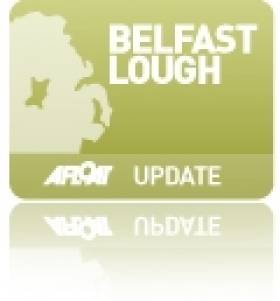Displaying items by tag: Workboat Safety
#WorkboatSafety - SMS Towage which has towage operations in Belfast Harbour is spearheading an industry drive to create a new national workboat safety standard across the UK.
The Hessle-based business expanded its towage operations to Belfast in 2013 as previously reported on Afloat.ie, is to help implement the Maritime Coastguard Agency (MCA) -approved Voluntary Towage Endorsement Scheme with the National Workboat Association (NWA).
It has started to rollout the new scheme that leads to a recognised ship assist qualification meeting the strict standards of the Port Marine Safety Code.
Patrick Lyon, managing director of SMS Towage, said: "We need to continually push to ensure the safe operation of vessels. This scheme is being introduced now and will create a new standard of training for workboat safety".
"We already have excellent safety training systems but have been working to achieve a unified scheme that benefits crew, customers and the industry as a whole. We are supporting this every inch of the way."
Hugh Patience, SMS's marine manager and a qualified assessor, is on the NWA's training sub-committee and has produced manuals to help association members get up to speed with the scheme.
"Hugh is an expert safety training assessor," said Mr Lyon. "He is one of the most experienced in the industry and has been instrumental in getting this voluntary scheme off the ground.
Hugh added: "It has been well received and we expect it to become industry standard."
"All of our skippers are already going through the training, and the process of implementing the new standard has started in the Humber, Belfast and South Wales Ports where SMS Towage operates."





























































